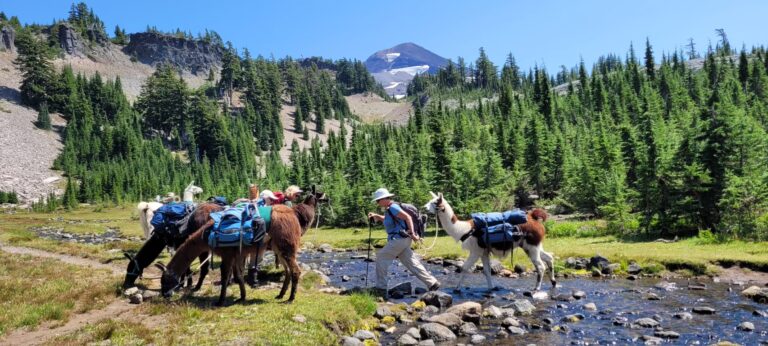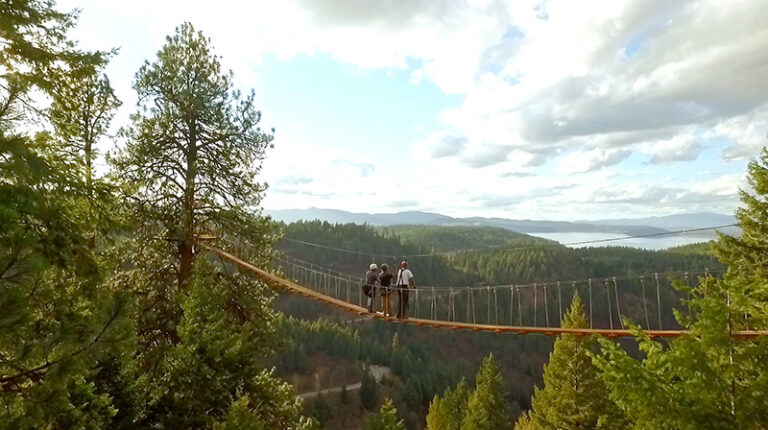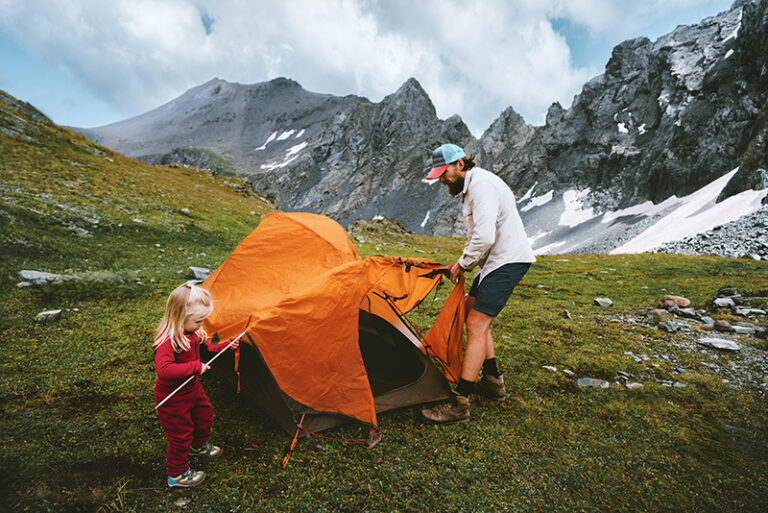Outdoor Parents, Outdoor Kids: A Guide To Getting Your Kids Active In The Great Outdoors
Eugene Buchanan
Heliconia Press, March 2010, 300 pages.
For those that refuse to let their kids become an obesity statistic, this is your book. Award-winning author Eugene Buchanan made a pact with his wife that parenthood wouldn’t interfere with their outdoor pursuits and active lifestyles, yet when push came to shove he learned he was pushing and shoving strollers, diaper bags, baby joggers, and lots of kids’ skis and miniature PFDs. Now that his kids are older, Buchanan organized all of his humorous trial and error stories and wrote one of the most informative books about getting kids outdoors.
Biking, hiking, skiing, climbing, rafting, camping and much more, Buchanan didn’t hold back. Like a nightlight in a tent, Outdoor Parents, Outdoor Kids shines on all the ways parents can participate in these activities and still bring the kids back in one piece. Along the way, the book extends a helping hand to parents that seek to get their kids outside and instill in them a respect for their health and the environment.
“Kids shouldn’t put the skids on outdoor recreation. Priorities change with parenting, sure. You’ll change diapers with the same aplomb you previously reserved for placing climbing protection (the lack of which got you into parentdom in the first place) and you’ll become an expert at jigsaw-puzzling bikes into the back of your car. But kids don’t mean throwing your outdoor lifestyle out the car window (which is now lowered to accommodate an extra set of bike handlebars).”
The book is certainly witty from cover to cover, and even non-parents can laugh at many of the trailhead or ski lodge incidents. Perhaps he included a few too many nostalgia moments, but clearly all of the instructional advice for preparing, training, and promoting safety throughout each excursion is top notch. He’s also quick to point out that Outdoor Parents, Outdoor Kids goal of getting your kids outside is nested around the goal of your kids taking your grandkids outside so the accomplishments, adventures, environmental respect plus the ongoing family legacy of fishing or biking or skiing is carried onward.
In a nutshell, you can never start too young, and parents and kids will be better for it.
Jon Jonckers
Decomposition: An Anthology Of Fungi-Inspired Poems
Edited by Kelly Chadwick and Renee Roehl
Lost Horse Press, Sandpoint April 2010. 120 pages.
“Poems, like mushrooms, demand our close attention before they can be found or seen at all,” writes Jane Hirshfield in her forward to Decomposition: An Anthology of Fungi-Inspired Poems. Anyone who has bumbled about a wet forest searching for morels (the area’s golden boy of fungi food) knows the difficult wisdom of mushroom gathering: their tender meat is as often nowhere to be found as it is just beneath the feet, as likely to be hidden beneath the shady side of a fallen snag as to be erupting in plain sight. The lesson: the beauty is in the finding.
So with poetry. Over the course of our reading lives, we all find mini-anthologies of poems that shape us. What the good anthologist does—like the forest fire sometimes does for the elusive morel—is accelerate the process. Renee Roehl and Kelly Chadwick are excellent anthologists; this collection gathers together a powerful and delicate mix of poems. Pursuing both thematic groupings within the book (“Veil,” “Fruiting Body,” and “Ruin: Collapse”) and a range of poetic sensibilities (from Sherman Alexie to William Butler Yeats, John Cage to Kay Ryan, Sylvia Plath to Ted Kooser) these poems from primarily twentieth century American poets (with a few exceptions) explore fungi in family, romance, and hallucinations; fungi as phalluses’ hats, and “black goateed god.” Fungi as us.
Which is, really, to offer only a small sampling of the imaginative splendor of this book. The list of poets is impressive: Hass, Bishop, Alexie, Yeats, Penn Warren, Stafford, Merwin, Plath, and Dickinson (to name a few). What’s more impressive, though, than any cast list is how the collection both coheres—with poems overlapping and in dialogue with one another—and compels readers to find more poems (juicy, maybe dangerous) like mushrooms in the woods (beneath the porch, high in the mountains) to nourish their lives.
Tod Marshall













